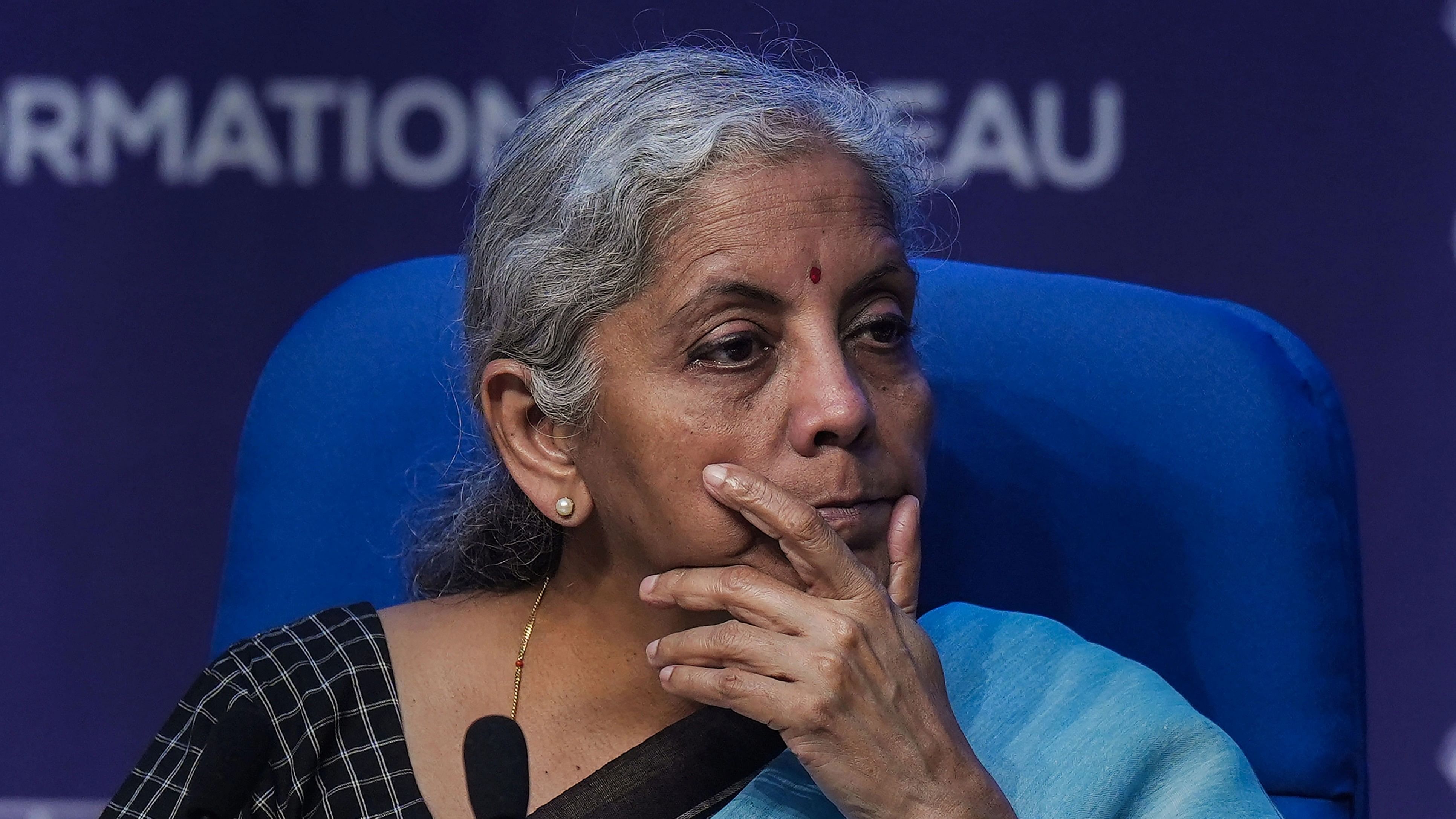
Finance Minister Nirmala Sitharaman.
Credit: PTI
The GST Council will decide on the modalities for appropriating the revenue collected by levying compensation cess on luxury, sin and demerit goods beyond March 2026, the deadline to repay loans taken by Centre to compensate states for revenue loss during Covid, an official said.
Compensation cess was initially brought in for 5 years to make good the revenue shortfall of states following implementation of the Goods and Services Tax (GST). The compensation cess expired in June 2022, but the amount collected through the levy is being used to repay the interest and principal of the Rs 2.69 lakh crore that the Centre had borrowed during Covid.
The GST Council will now have to take a call on the issue of 'GST compensation cess' with regard to its name, and the modalities for its distribution among the states.
The issue was raised by some states at the 52nd GST Council meeting on October 7.
Chattisgarh Deputy Chief Minister T S Singh Deo said the issue was raised by Karnataka on 'prospective planning' for tax collected under the GST compensation cess account.
"After March 2026 what will happen to the cess amount? Now that there is no compensation, what will you do with the cess amount? Will there be cess or a cess with another name. Will it be for another purpose? How will you apportion it? Will the base be 2015-16 financial year or a new date? So the consensus of the House was also that if you are going to talk about it, we should talk about a new financial year (as base year)," Deo said.
In order to meet the resource gap of the states due to short release of compensation, the Centre borrowed and released Rs 1.1 lakh crore in 2020-21 and Rs 1.59 lakh crore in 2021-22 as back-to-back loans to meet a part of the shortfall in cess collection.
The Centre, in June last year, notified extension of the compensation cess, levied on luxury and demerit goods, till March 2026 to repay borrowing that were done in 2020-21 and 2021-22 to compensate states for GST revenue loss.
Finance Ministers Nirmala Sitharaman had on Saturday told reporters that the GST Council has agreed for a discussion on the way the cess can be renamed and can be appropriated between the Centre and states.
"The discussion (in the GST Council) was from the view of prospective planning, can the GST Council look at if there are ways in which cess or surcharge or something else can be used, if at all can be used how to use it," Sitharaman had said.
GST was introduced from July 1, 2017, and states were assured of compensation for the revenue loss, till June 2022, arising on account of GST roll-out.
Though states' protected revenue has been growing at 14 per cent compounded growth, the cess collection did not increase in the same proportion. COVID-19 further increased the gap between protected revenue and the actual revenue receipt including reduction in cess collection.
In order to meet the resource gap of the states due to short release of compensation, the Centre borrowed and released Rs 2.69 lakh crore in 2020-21 and 2021-22 as back-to-back loans to meet a part of the shortfall in cess collection. This loan is to be repaid by March 2026.